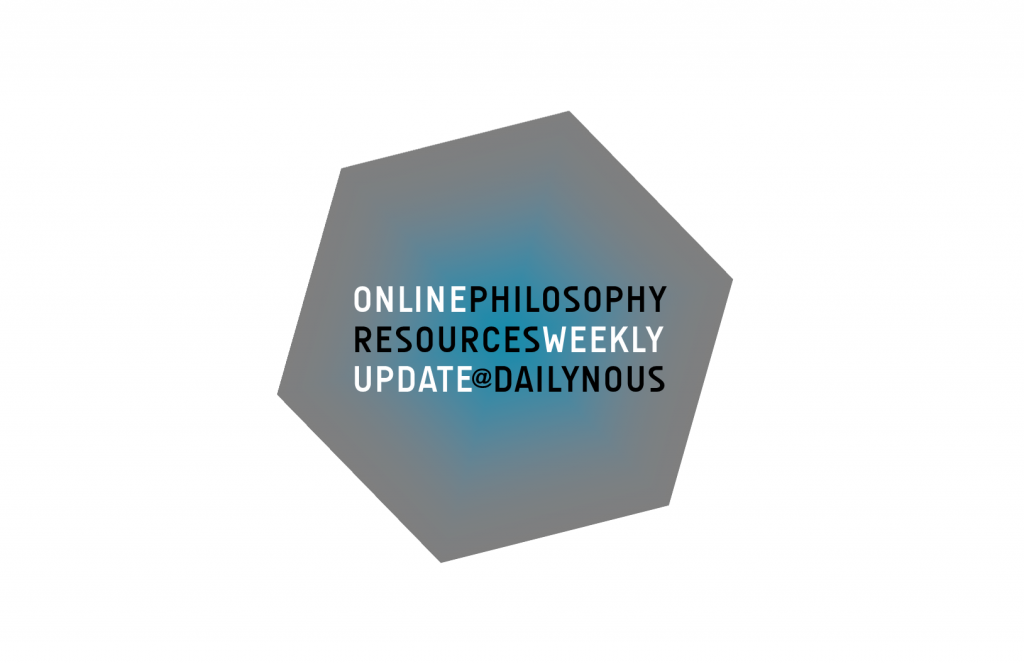Online Philosophy Resources Weekly Update
Here’s the weekly report on new and revised entries in online philosophy resources and new reviews of philosophy books…

New: ∅
Revised:
- Descartes’ Ontological Argument, by Lawrence Nolan.
- Developmental Biology, by Alan Love.
- Michael Oakeshott, by Terry Nardin.
- Feminist Epistemology and Philosophy of Science, by Elizabeth Anderson.
- Change and Inconsistency, by Chris Mortensen.
- Plato on Rhetoric and Poetry, by Charles L. Griswold.
- Discourse Representation Theory, by Bart Geurts, David I. Beaver, and Emar Maier.
- Divine Illumination, by Robert Pasnau.
- Temporal Logic, by Valentin Goranko and Antje Rumberg.
- Kumārila, by Daniel Arnold.
- Philosophy of Science in Latin America, by Olimpia Lombardi, Alberto Cordero, and Ana Rosa Pérez Ransanz.
- Kant’s Philosophy of Religion, by Lawrence Pasternack and Courtney Fugate.
- Conspiracy Theories, by Marc Pauly (Groningen).
- Andrew Lambert (City University of New York / College of Staten Island) reviews The Wrong of Rudeness: Learning Modern Civility from Ancient Chinese Philosophy (Oxford), by Amy Olberding.
- Jonathan Mitchell (Manchester) reviews The New Cambridge Companion to Nietzsche (Cambridge), by Tom Stern (ed.).
- Eric Watkins (California-San Diego) reviews Kant on the Sources of Metaphysics: The Dialectic of Pure Reason (Cambridge), by Marcus Willaschek.
- Sydney Penner (Asbury) reviews The Political Morality of the Late Scholastics: Civic Life, War and Conscience (Cambridge), by Daniel Schwartz.
- Ethical Egoism, by Nathan Nobis (Morehouse College).
Recent Philosophy Book Reviews in Non-Academic Media ∅
- Decolonizing Universalism: A Transnational Feminist Ethic by Serene Khader, reviewed by Daniel Halliday in the Australian Book Review.
- The Force of Nonviolence: The Ethical in the Political by Judith Butler, reviewed by Lynne Segal in Times Higher Education.
Compiled by Michael Glawson.
BONUS: How to end your next paper.
Subscribe
Login
0 Comments


